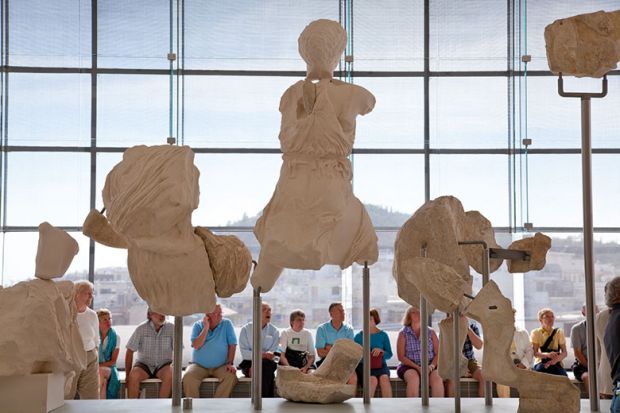The words “endowed professorship” tend to evoke images of highly paid scholars feted by both outside funders and their university.
A job advertised by the University of Amsterdam has, however, shed light on the more mundane reality inhabited by many of those in academic posts backed by industry or the charity sector.
According to the job description for the chair of modern Greek studies posted last month, whoever fills the professorship part-funded by the Greek Laskaridis shipping family will not be paid an “official salary” from the university. Instead, they will receive an unspecified share of €20,000 (£16,730) from the Dutch Society of Modern Greek Studies to carry out numerous academic duties for, on average, one day a week.
The professorship, named after the late shipping heiress Marilena Laskaridis, lasts for five years, during which time the post-holder will be asked to teach, to supervise PhD students and to win research grants.
Despite being based in Amsterdam’s Faculty of Humanities, the professor would not be an employee of the university and would not receive any of the usual benefits enjoyed by other staff.
While the arrangement might seem odd to some observers, it is not unusual for Dutch higher education, the university has insisted.
This model was developed in the medieval era to get round the problem of employing priests at state universities – the Netherlands has long had a strict separation of church and state. And it could be used to good effect elsewhere to preserve the study of under-threat subjects, a university spokesman said.
“Amsterdam once had full professors in Sanskrit and Hittite, but the world changes,” he continued.
“These posts ensure that modern Greek studies and similar subjects have a presence in the academy,” the spokesman explained, saying there were about 20 endowed professorships in Amsterdam’s humanities faculty.
The spokesman argued that the chair, which is jointly funded by the government of Cyprus and the Aikaterini Laskaridis Foundation, would help to raise the profile of modern Greek studies.
“Professors get invited to speak on radio or TV shows, but postdocs and PhD students don’t,” he said.
Search for academic jobs in Europe
Jeroen Huisman, professor of higher education at Ghent University, said that this type of endowed professorship might allow smaller organisations to sponsor academic posts.
“These foundations come in different shapes and sizes – some, like the Gates Foundation, can put millions on the table each, others can provide $200,000 (£155,000) a year, and some have more limited resources,” said Professor Huisman.
“The tricky thing is accountability – how does it work if the person does not do the job properly, given that the university does not actually employ them?” he added.
Whatever their benefits, such endowed professorships will continue to be viewed with scepticism by other sectors, said Michael Shattock, visiting professor of higher education at the UCL Institute of Education.
“Endowed chairs typically attract a large amount of capital, with the interest used over the years to pay the salary of a professor,” Professor Shattock said. “This is not an endowed chair as we know it.”




